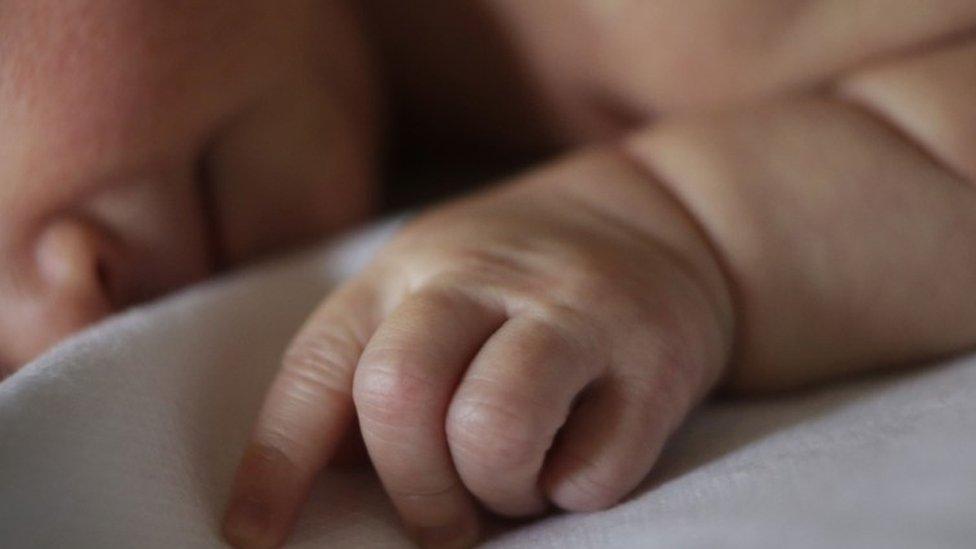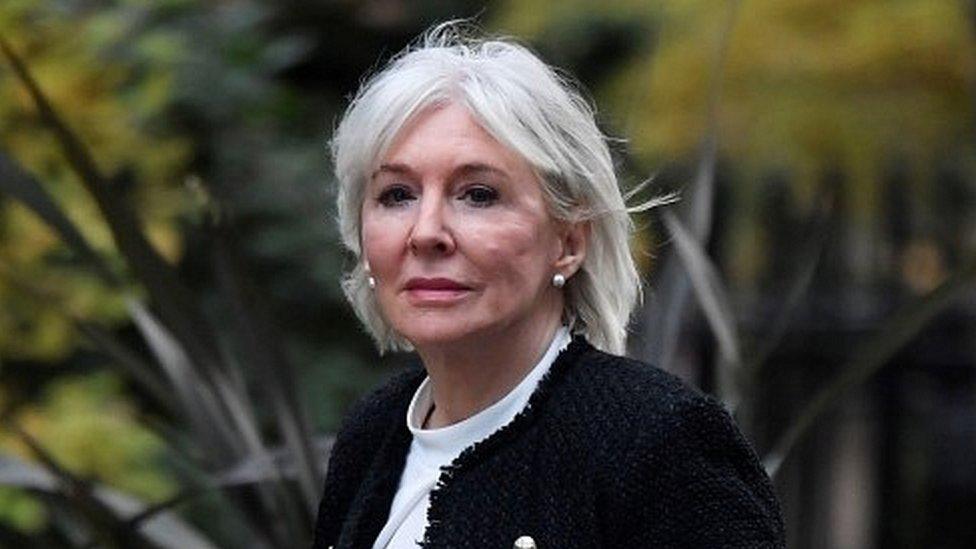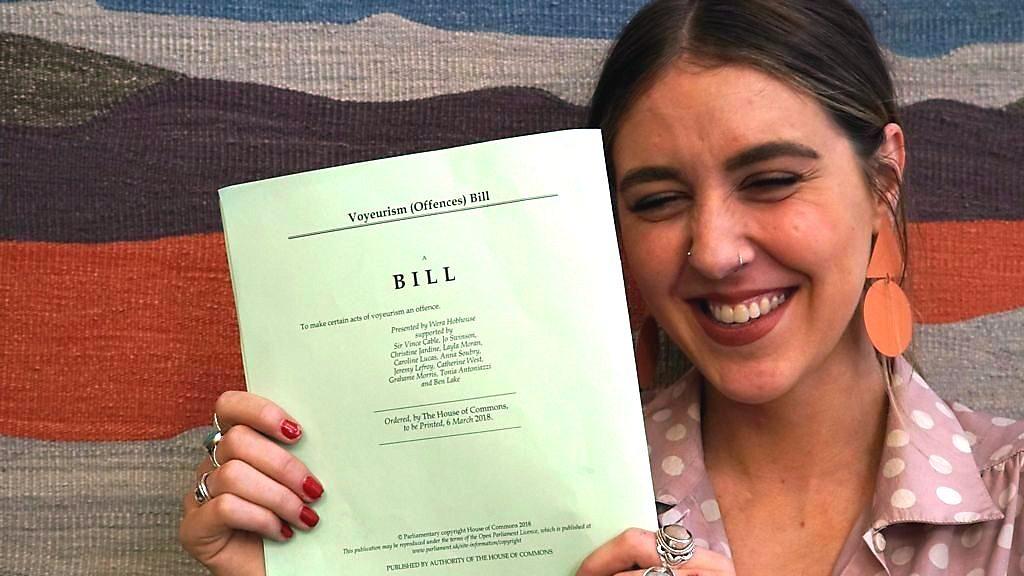MLAs back bill to combat upskirting and cyberflashing
- Published

Upskirting involves the taking of covert pictures or videos underneath a victim's clothing
MLAs have backed a bill that aims to combat violence and abuse including the offence of upskirting and cyberflashing.
Assembly members gave their support to the Justice (Sexual Offences and Trafficking Victims) Bill.
The move was brought forward by Justice Minister Naomi Long who said it would make an "important contribution " to combatting abuse and violence.
She contributed remotely via video link as she is currently self-isolating.
The Alliance MLA told the assembly that many victims of abuse suffered "emotional trauma" and she said for too long this had been a "taboo" subject.
She said this bill represented "the final piece of the jigsaw".
The East Belfast MLA said she welcomed a time when legislation like this " was no longer needed".
She said trafficking resulted in "human misery".
Cyberflashing is sending unwanted graphic nude images to people without their consent.
Upskirting involves the use of a recording device, such as a camera phone, to take explicit images underneath a victim's clothing without permission and often undetected.

Naomi Long says many victims of abuse suffered "emotional trauma" too long
DUP MLA Peter Weir backed the move.
The Strangford MLA said when it came to this type of legislation, Northern Ireland often leads the way.
Sinn Féin's Sinead Ennis said she was proud that this legislation was going to be enacted.
'Long overdue'
The South Down MLA told the assembly that it was important to remember that victims were not to blame but abusers "were to blame".
The legislative move was also welcomed by SDLP MLA Dolores Kelly, who said the bill was long overdue and said it should have been on the statute books "much earlier".
The Upper Bann representative hoped that the measures contained in the bill would be properly resourced.
Green Party MLA Rachel Woods also welcomed the bill but she had criticism that certain clauses were not included.
She said there needed to be more work on the issue of consent. She told MLAs that legislators had "much more to do".
Traditional Unionist Voice (TUV) leader Jim Allister was positive about parts of the bill saying there was much that was "valuable and worthwhile" in the planned legislation.
However, he raised a concern that one particular clause could be a breach of human rights legislation.
The bill passed its final stage on an oral vote in the assembly.
Related topics
- Published15 March 2022

- Published23 November 2021

- Published3 November 2021

- Published12 April 2019
